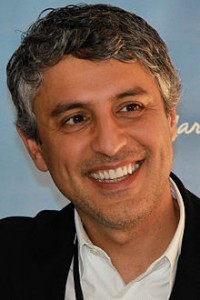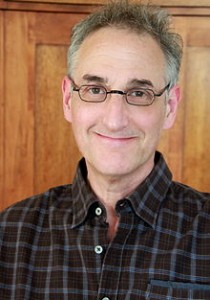Reza Aslan’s series “Believer” on CNN ran an episode about Scientology last night. And as expected it was misleading and a disappointment to almost any serious Scientology watcher. CNN has done some great work exposing the bad behavior of Scientology, but Aslan let CNN down by providing half-truths and misleading information to its viewers.
Aslan started out by admitting he has been called an “apologist” when it comes to Scientology and perhaps other “new religions” referred to as “cults.”
CultNews noted in a previous report that an online CNN article promoting the Aslan’s Scientology show featured two academics, David Bromley and J. Gordon Melton, used by Scientology as “religious resources.” Both of these “scholars” have been called “cult apologists.”
In the show last night Aslan featured an interview with yet another apparent apologist Donald Westerbrook, Lecturer, Center for the Study of Religion, University of California, Los Angeles, who offered no meaningful criticism of Scientology, but rather whatever explanations the controversial church had provided. Westbrook has said, “I suspect that Scientology’s theology, practices, and marketing will continue to provide promising case studies for understanding contemporary intersection points between science and religion.”
Aslan flippantly dismissed Lawrence Wright and his book “Going Clear” about Scientology by challenging the author to criticize Jesus.But according to the New Testament Jesus didn’t collect fees from his disciples and unlike L. Ron Hubbard didn’t leave this earth a wealthy man. Jesus was poor and sought nothing in any material sense. Hubbard arguably designed Scientology as a business to make money. Scientology and its founder have historically been described differently than Jesus. “The organization clearly is schizophrenic and paranoid, and this bizarre combination seems to be reflective of its founder LRH,” wrote California Superior Court Judge Paul Breckenridge during a top Scientology defector’s court suit against the church. “The evidence portrays a man who has been virtually a pathological liar when it comes to his history, background and achievements,”
When Aslan describes what is called Scientology’s “tech” he failed to include how expensive it is or what the fees are charged by “independent Scientologists” who have now gone into business separated from the original organization. Aslan compares Scientology to McDonalds in a dispute with former franchise holders over its “secret sauce.” It’s actually Jack in The Box that has a secret sauce, but never mind, this mistake stating the facts is minor when compared to the mountain of misleading information Aslan lays out during the show.
Aslan compares the Protestant Reformation to Scientology independents withering away in tiny enclaves. But the defections of Scientologists has little to do with doctrine and more to do with the bad behavior of the organization under the dictatorial rule of David Miscavige. And as Aslan should know, unlike Miscavige, the Pope is elected.
What viewers see throughout the episode is aging Scientologists clinging onto to an imaginary Hubbard that belies the reality of history and his genuine biography. Independent Scientologists can be seen as an example of cognitive dissonance, not a serious and substantial movement for reformation. The comparison made by Aslan is laughable if not pathetic and doesn’t reflect any serious historical research or scholarship.
Even in Aslan’s happy compliance when he submits to an auditing (spiritual counseling) session there is no meaningful explanation of what is actually happening. That is, an interrogation of someone with the aid of a machine called an e-meter. What Aslan fails to disclose is that “Hubbard was granted a US patent in 1966 for a ‘device for measuring and indicating changes in resistance of a living body,’ but the original electropsychometer was developed in the 1950s by psychoanalyst Volney G. Mathison.” And that “since a 1963 US food and drug administration edict, Scientology can no longer refer to E-meters as having any medical use: they are now ‘religious artifacts’.”
Aslan correctly states that the e-meter can be seen as part of a “lie detector.” So auditing within Scientology might be more accurately portrayed as a form of coercive persuasion aided by a machine to intimidate the subject.
Independent Scientologist and auditor Randy then puts Aslan through a training routine (TR) within Scientology known as Bullbaiting (TR 0 Bullbait). In this routine the subject is baited to have an emotional response to confrontational conversation, such as insults. Randy throws a few softballs and Aslan does the same in their exchange. It would have interesting to watch Randy’s reaction if Aslan has thrown him a few curve balls, such as all that according to the coroner’s report when Hubbard died his “blood contained traces of Hydroxyzine, also known as Vistaril,” a psychotropic drug prescribed by psychiatrists for anxiety. Did Scientology’s “tech” fail its founder? Aslan doesn’t touch upon this historical fact, which might really upset Randy.
Aslan concludes that Scientology is not unlike the Roman Catholic Church that has had its share of clergy abuse scandals. However, this comparison doesn’t take into account that the Catholic Church has paid out more than $1 billion dollars in compensation to the victims of sexual abuse and changed its policies to address this issue. Meanwhile Scientology has paid out relatively little to its victims and has not significantly changed the policies that hurt them. Likewise, unlike Pope Benedict IX, David Miscavige has not stepped down for an early retirement, but rather remains fully in charge of Scientology.
Reza Aslan may have proven that he has a bright future as an apologist for “new religious movements” (NRM) called “cults,” following in the footsteps of Bromley and Melton, but as a supposed intellectual inquirer he falls flat in his show about Scientology. What Aslan proves instead is that he is not an objective student of history when it comes to Scientology.
Note: The Cult Education Institute (CEI) has one of the largest historical archives online about Scientology. It represents more than 20 years of work and research and covers everything Scientology, from real estate holdings to Scientology’s damaging policy of “disconnection.” CEI founder Rick Alan Ross, author of the book “Cults Inside Out” and a court qualified expert on Scientology, explains within an educational video how Scientology manipulates and controls people.
Update: Reza Aslan’s show “Believer” was later cancelled by CNN.






